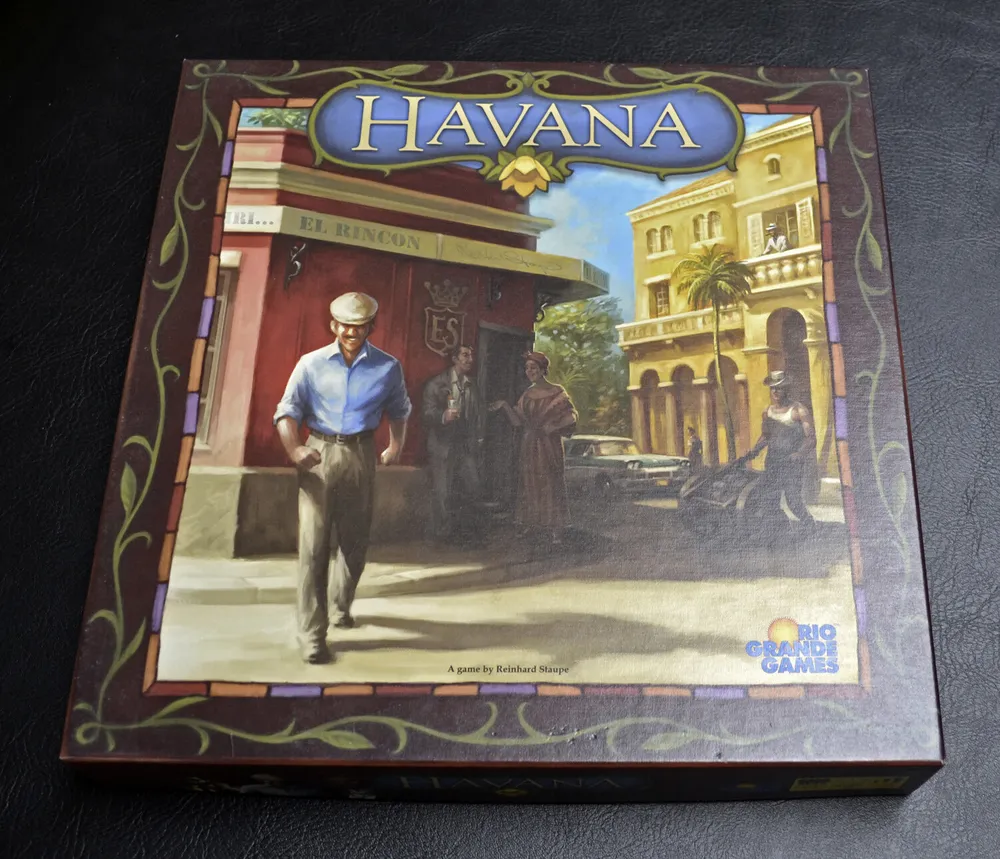Havana (2009)
Havana
“Havana” is a board game designed by Reinhard Staupe, released in 2009, and published by Rio Grande Games. The game is set just after the Cuban Revolution and revolves around the regeneration of Cuba’s capital, Havana. It serves as a sequel to the board game “Cuba” and uses Michael Menzel’s artwork from that game.
Why is Havana Popular?
Havana is a popular and significant board game for several reasons:Unique Theme: The game is set in a historical context, allowing players to immerse themselves in the post-Revolution era of Cuba and experience its reconstruction.Resource Management and Planning: Havana challenges players to manage resources and plan their actions, making it a strategic and engaging experience.Accessible Gameplay: The game is easy to learn and play, with a setup time of only 5 minutes and a playing time of 30-45 minutes.Replayability: Havana offers a variety of strategies and tactics, allowing players of different skill levels to enjoy the game.
Game Components of Havana
How To Setup Havana
To set up Havana, each player starts by drawing one building material cube and 1 peso, placing them in front of themselves. The remaining building material cubes and pesos are placed as stock at the table edge. Twelve building tiles are revealed and arranged in two rows of six, with the remaining tiles forming a face-down draw pile. Each player chooses two of their 13 action cards and places them face-down. Three new building material cubes and four pesos are also placed in the center of the table.
Gameplay Mechanics and Game Objective
Player Experience
Havana offers a dynamic and interactive gameplay experience with a constantly changing turn order. Players need to strategically choose their action cards to gather resources, manipulate turn order, and outmaneuver their opponents. The game requires a bit of thought and planning, making it unforgiving of mistakes but rewarding for clever and thoughtful players. The game’s short duration and smooth gameplay make it an enjoyable experience, even for new players.
Pros
Cons
Personal Thoughts on Havana
Havana is ideal for fans of quick card games and those looking for a light strategy game that still offers a fair level of challenge. It is a great option for introducing new players to more complex game mechanics without overwhelming them. However, players seeking longer, more intricate games might find Havana too brief. The game’s competitive nature and player interaction make it a good choice for groups looking for a fun and engaging experience.
We are supported by our audience. When you purchase through links on our site, we may earn an affiliate commission, at no extra cost for you. Learn more.

